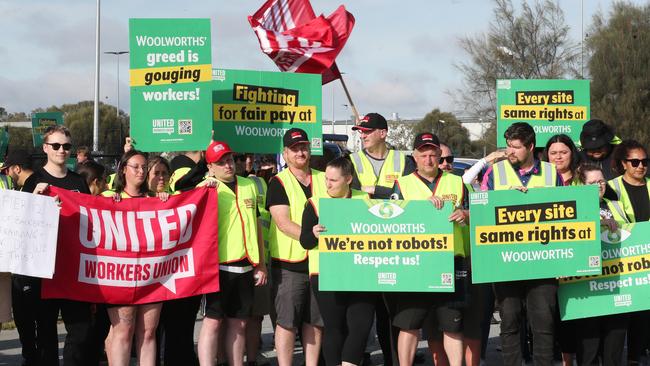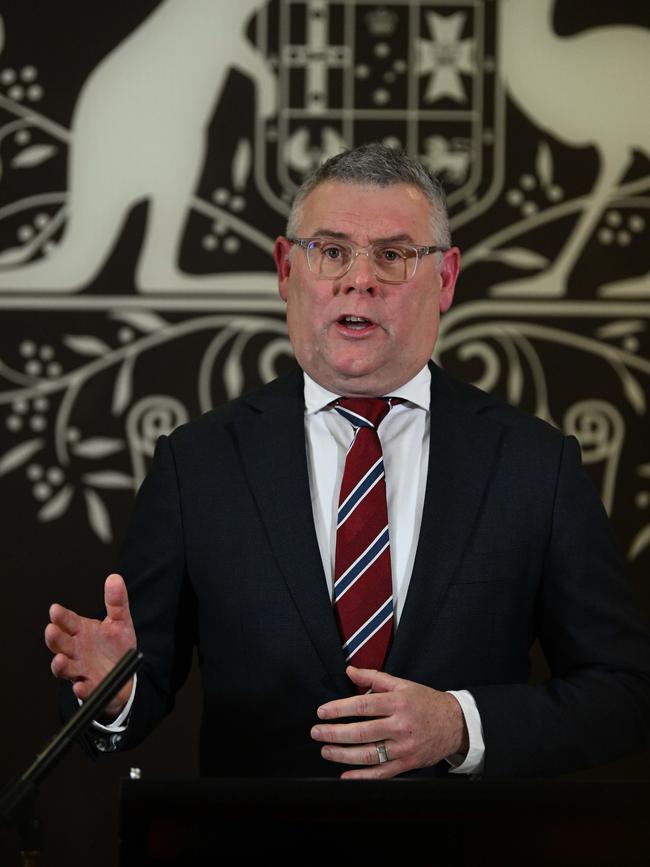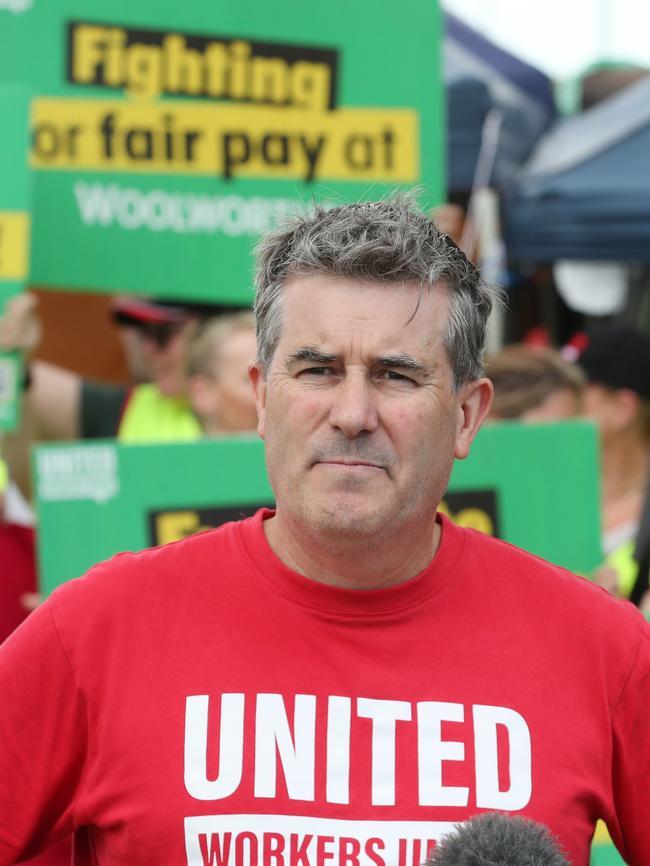Labor demands bosses consult with workers over AI
Murray Watt says Australians do not want ‘robots making arbitrary decisions about workers’ livelihoods’.

Workplace Relations Minister Murray Watt says Australians do not want “robots making arbitrary decisions about workers’ livelihoods”, and called on employers to consult with their employees before introducing “highly intrusive” performance management technology.
In the wake of the Woolworths dispute, which saw workers strike in protest at the company’s employee performance management framework, Senator Watt said the government recognised the benefits of new technology, including increased productivity, but it needed to be introduced and managed in a way that respected the rights of workers.
He said the government was considering whether the Fair Work Act was adequately keeping pace with technology developments including artificial intelligence, although he stressed he was not proposing a new review of the legislation.
“The Woolworths dispute was the latest in a line of disputes we’ve seen where companies have attempted to bring in highly intrusive technology systems to their workplace, and they need to genuinely consult their workforce in that process,” Senator Watt told The Weekend Australian.
The dispute, which left the company’s supermarket shelves bare, was resolved after Woolworths agreed to make changes to its performance management system breaking the link between measuring the speed of employees’ work and automatic punishment if they fell behind.
Under a new clause, workers will not be disciplined for the speed they could work at, and there was an acknowledgment that not every warehouse worker could pick at 100 per cent.
Speaking more broadly than the Woolworths dispute, Senator Watt said there was growing concern among workers that the highly intrusive technology “doesn’t take note of individual differences of workers, that potentially punishments can be meted out through arbitrary use of technology without appropriate human oversight over those decisions and the fair processes around disciplinary decisions that have always existed in Australian workplaces”.

“I think all workers recognise that employers have a right to performance management processes but the point is they have got to be fair,” he said.
“Traditionally, Australian workplaces have well-accepted ways of managing performance that have been backed up by legislation, and they usually involve a process that workers can have input into.
“The risk with AI and other technology is that kind of system of feedback, opportunities to improve, potentially gets removed through that arbitrary system of ‘you’ve gone’, and that’s the risk we have got to guard against because I think that does run counter to how Australians feel performance issues should be managed in a workplace.
“I don’t think Australians want robots making arbitrary decisions about someone’s livelihood without that person having an opportunity to provide feedback and to have their individual features considered.”
Senator Watt said successful workplaces featured a range of different people with a range of different skills and abilities working together for a common cause, and “if technology doesn’t acknowledge that level of difference, you can end up with some very unfair consequences”.
“I think there is a growing anxiety in the workplace about the risks around AI being introduced because people can see examples of it being used in an overly arbitrary way and people do really want to preserve the fair go in the workplace, that’s one of the things that makes Australia great.”
United Workers Union national secretary Tim Kennedy said the Woolworths dispute showed that workers would take action to protect their wellbeing and assert fundamental rights.

“In the case of AI being used to speed up and physically push people to the limit, there are avenues around existing health and safety laws, as well as protected action in bargaining periods, that workers will use to win a safe and respectful workplace,” he said.
“In many respects, the issues of increased use of AI in how we work will be the central purpose of unions in the future, as they go to human rights. If unions are not active here in addition to hours, pay, conditions, etc, then their utility will be diminished for workers.”
Mr Kennedy said the dispute and the action taken by the workers cut through with the wider public.
“I think the reason why the whole issue of the algorithmic systems cut through with the public is people could see how it would actually happen in their work experience,” he said.
“We had contact from workers from both the public sector and private sector saying, ‘I’m having this issue of AI systems impacting on me’ and no accountability and no transparency about what is the data that is informing it.
“I think a lot of Australians could take the experience of a warehouse worker which was alien to them and understand the issues and transpose it to the challenges they’re having in their working lives. That came through in so many places.
“We weren’t Luddites. We’re saying this technology is important and can improve human lives. All we’re saying is it’s being used to increase surveillance, to remove accountability and to undermine human rights, and that’s not for a proper purpose.”
Mr Kennedy said the issue “does have the potential to have economy-wide impacts as people from different sectors start to struggle with these challenges, as we move from an industrial to a digital/AI age”.
“These things aren’t going to be swept under the carpet because they impact humans, how they live their lives and how they would like to impact their lives,” he said.
Australian Industry Group chief executive Innes Willox said there was a pressing need to become more productive but that desire needed to be balanced with maintaining and improving worker safety.
“Remembering that it is employers who bear the responsibility for providing a safe workplace, technology is playing a big part in improving safety and regulatory compliance,” he said.
“Businesses are increasingly investing in areas such as artificial intelligence to drive productivity improvements. This can involve computers working with humans as tools, assistants, peer support or managers of some tasks. This frees up the workforce to perform more productive tasks that also lead to sustainable wage improvements.
“As a nation we can’t just put a stop sign in front of technological advance. Business and government both recognise this. Given that the vast majority of the jobs of the future will require digital and technology skills and awareness, a key part to our national success will be developing the workforce skills to work with technology as it evolves.”






To join the conversation, please log in. Don't have an account? Register
Join the conversation, you are commenting as Logout